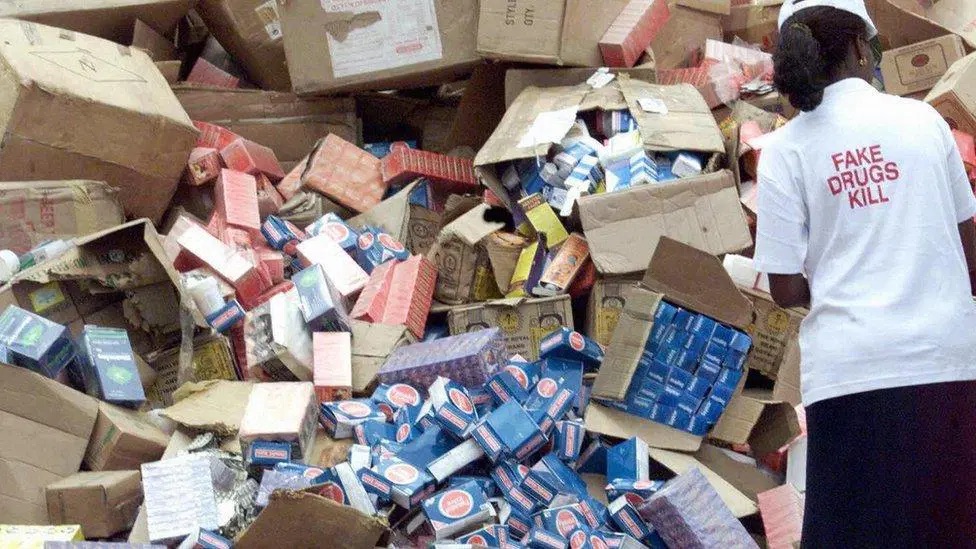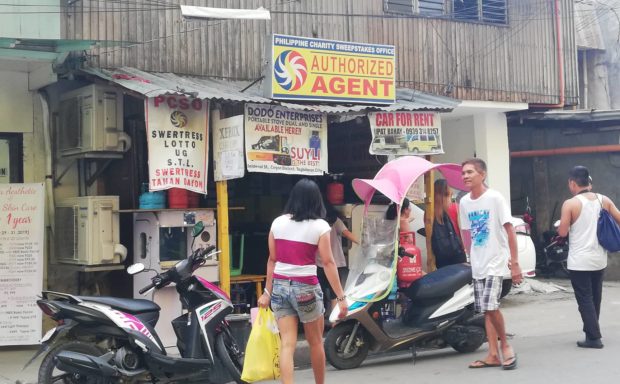From Fred Ezeh, AbujaThe nationwide onslaught on dealers and merchants of fake, unwholesome and substandard drugs and other items by the National Agency for Food and Drug Administration and Control (NAFDAC) dominated conventional and social media for the past few weeks.The onslaught brought to the fore the hidden criminal activities of the drug merchants that have gone on for quite a long time in the open drug markets across the country. googletag.
cmd.push(function() { googletag.display('div-gpt-ad-1718806029429-0'); }); NAFDAC officials, in a coordinated approach, stormed the major open drug markets in Nigeria located at Idumota (Lagos), Aba (Abia) and Onitsha (Anambra), unannounced following weeks of undercover investigations on suspicion of criminal activities in the markets.

The shocking discoveries in the drugs section of the aforementioned markets led to the total closure of the markets for proper cleansing of the market. The development generated national outcry, with some people commending NAFDAC for such courageous action, while some accused them of playing a script against some set of people.But after several weeks of closure of the markets for proper evacuation of substandard and falsified pharmaceutical and other products, the market was reopened for public use.
$(document).ready(function(){(adsbygoogle = window.adsbygoogle || []).
push({})}); The raidFollowing weeks of intelligence gathering on the activities of the fake and falsified drugs dealers in the major open drug markets in Nigeria, as well as the complaints of consumers, NAFDAC enforcement team invaded the markets for the purposes of monitoring and search for fake, falsified, and substandard drugs as well as unwholesome products.NAFDAC noted that before the D-day, security officials conducted intelligence and made necessary deployment to guarantee the safety of the operations at the targeted markets. Over 1000 security personnel were mobilised to the various markets for the raid.
This was, in addition, to a large number of NAFDAC officials pulled out from different states and zonal offices for the enforcement.The operations in Onitsha were led by theDirector, NAFDAC South East Zone, Dr. Martins Iluyomade, while the Deputy Director, Monitoring and Enforcement and Federal Task Force, South-South, South-East, Pharmacist Omoyeni Babatunji, led the operations in Aba.
They both claimed the action was in response to allegations of product falsification.No fewer than 100 truckloads of substandard falsified and banned medicines were evacuated from the three major open drug markets within the six weeks of the operation. 27 truckloads were evacuated from the Idumota market and have already been destroyed.
In Aba and Onitsha markets, about 80 40-foot truckloads of unregistered, banned medicines and narcotics were also seized and evacuated. $(document).ready(function(){(adsbygoogle = window.
adsbygoogle || []).push({})}); For Aba and environs, 14 truckloads of banned medicines were evacuated from the Osisioma warehouse alone, four truckloads from the Ariara road warehouse, and 10 truckloads of the medicines were seized from the markets.In Onitsha market, there were 110 lines where they sold drugs, aside from the plumbing and the wood plank markets.
From the plumbing section, the warehouses were without windows with a temperature of more than 40 degrees °C, thus subjecting the medicines to degradation before the usage.Similarly, 10 truckloads of tramadol were evacuated from the plumbing, wood plank, and the fashion lines of the market, while about four truckloads of syrup with codeine that was banned almost seven years ago were also evacuated.NAFDAC said it’s still taking records of the devastating and deadly activities of the merchants of death, masquerading as medicine dealers among the shop owners.
Where NAFDAC missed itProf. Adeyeye told journalists at a press conference in Abuja recently that years of weak and compromised systems were responsible for the free and unchecked activities of the fake drug merchants in Nigeria. $(document).
ready(function(){(adsbygoogle = window.adsbygoogle || []).push({})}); She disclosed that NAFDAC had, over the years, operated a weak and unrealistic system even when late Prof.
Dora Akunyili was the Director General. “An agency like NAFDAC cannot function effectively with sustained momentum as a regulatory agency without building a solid and uncompromiseable system. Unarguably and evidently, NAFDAC dropped the ball during and after Prof.
Akunyili.“Undoubtedly, Prof. Akunyili worked hard to end the circulation of substandard falsified medicines.
But that could not be sustained because there was no concrete structure and system. If you do not change the mind of the people, you do not make them know the dangers of what they are doing, and you won’t achieve the desired result. And achieving that starts from internal.
If we are not strong, administratively, and otherwise, we cannot hand out anything. You cannot give what you don’t have.“People may not understand what we are doing because we are building the needed foundation and system that will make NAFDAC work effectively and efficiently.
People see a strong house but don’t see the foundation. So, in terms of NAFDAC dropping the ball, yes, before and after Akunyili.PCN’s complementary roleUnfortunately, many Nigerians are unaware that NAFDAC is not the only agency responsible for eliminating substandard and falsified medicines.
Pharmacy Council of Nigeria (PCN) also has that responsibility, in addition to licensing all sites where medicines are sold and re-licensing them every year.“But what happened? The Patent Medicine Dealers who seem richer than pharmacists took over, and that was because they sell anything and everything fake. A few decades ago, patent medicine dealers were very few, but the number suddenly became crowd when the supervision of their activities were removed from PCN and handed over to state governments.
$(document).ready(function(){(adsbygoogle = window.adsbygoogle || []).
push({})}); “In addition to that, the patent medicine dealers took PCN to court for 10 years. And when something is in court, you are limited to what you can do. That could, perhaps, be the reason for the overboard activities of the patent medicine dealers.
That was, perhaps, part of the problem. People think NAFDAC is the only agency responsible for controlling substandard phosphate. No! The PCN is also involved,” Prof.
Adeyeye said.The impedimentsNAFDAC said that some obvious challenges were responsible for the overboard activities of the drug merchants, and for several years, it has been highlighting some of the challenges, asking for intervention from the government.“Sadly, we have a situation in the country where you are expected to give somebody money to do their work.
Why do I have to give money to someone to do his or her work? And if I do not, that person will not do the work well. So, the giver of a bribe and the receiver of a bribe are both compromised. Because if I get money from you to register a product, very likely somebody is going to die because I will compromise.
So, we should all look inward.“We are not in a perfect world. But standing up for the right thing should not be an exception.
We started training ourselves. All our staff got trained. Does that mean we are perfect? No.
It is that we start changing our mindsets. That you don’t ask for something before the person begins the work.”“Secondly, when I got to NAFDAC, we were N3.
7bn in debt. I thought it was N3.2bn, but I got to know that there was N500 million that was used within two months before I came in.
We didn’t have laboratory equipment. 70 to 80 per cent were not working. No director had a laptop, and neither did we have operational vehicles.
$(document).ready(function(){(adsbygoogle = window.adsbygoogle || []).
push({})}); “Companies were routinely sending us vehicles to come and inspect them. You send a vehicle to go and inspect a company. The company may want something in favour or back.
So, that is part of the problem. But NAFDAC is no longer NAFDAC of seven years ago. We have not arrived, but we are years away from what we used to be.
We have dismissed staff that issued fake registration to companies. Our Governing Council has also been part and parcel of disciplining staff that went astray,” Prof. Adeyeye explained.
She said that another challenge is manpower, stressing that they do not have enough staff. “For instance, we had to pull staff from other zones for the operations in Aba, Onitsha, and Idumota. We are not asking for 10,000 staff at the same time.
It is for everybody to know that our work is 24/7. Our staff goes through hazards, death threats, and kidnapping. That is not a normal civil service job.
My hope is that everybody will understand what a regulatory agency goes through,” NAFDAC boss said.Another impediment is funding. “We have been fortunate for the past seven years that we were handling our money responsibly.
Our Internally Generated Revenue (IGR) was maybe a quarter of what it is now. Our user fee, about a quarter of what it used to be. And it’s not like we increased our clientele rapidly.
It is that there is a great reduction in corruption. Plugging holes where money can ooze out. Because it is money that you use to do things.
“No money, no computer. No money, no vehicle. No money, no laboratory equipment.
No money, no regulatory allowance. My staff know what I’m talking about. So, those are the big issues or impediments that have affected our smooth operations.
But despite that, the fact that we have been responsible financially, we still need more support from the government.Strengthening the systemNAFDAC boss informed journalists recently that the Agency had to embark on self-examination and cleansing, which led to the sack of some of its staff who was found to be involved in some fraudulent activities. $(document).
ready(function(){(adsbygoogle = window.adsbygoogle || []).push({})}); She explained: “We have what is called global benchmarking tool.
There are nine modules in that tool. From registration, which we call market authorization, market control, pharmacovigilance, laboratory testing, clinical trials, regulatory inspection, and load release for vaccines.“We started in January 2018, a month after my resumption.
I told my staff that you cannot build a strong regulatory agency like NAFDAC without a system, and they bought into the idea. We started with a quality management system. As God will have it, I was exposed to that in the US.
I was at an institution where they trained us properly.“So, we went through training on quality management system. Because it’s like you want to build a house, you don’t have a solid foundation, it’s a matter of time, It’s going to crash.
We were trained on how to think of the customer. If you are an accountant, you are a human resource person, you are a lab person, and you are a regulatory inspection person. What is the relevance of the customer to what you are doing? That is the fundamentals of quality management system.
How are you keeping records? Are you using Standard Operating Procedures (SOP), or just whenever you think you want to do something, you do it.“We have become SOP-driven agency. We started thinking of customers, and that’s why our logo changed to customer-focused, agency-minded.
We were building a foundation. It is easier to talk about efficient pharmacovigilance services in the hospital, in that region or wherever. But if there is no foundation, it’s a matter of time.
We got certified, and that was the beginning of the journey. We have become self-auditing Agency.”The post Fake drugs: Where we missed it –NAFDAC appeared first on The Sun Nigeria.
.
Health

Fake drugs: Where we missed it –NAFDAC

From Fred Ezeh, Abuja The nationwide onslaught on dealers and merchants of fake, unwholesome and substandard drugs and other items by the National Agency for Food and Drug Administration and Control (NAFDAC) dominated conventional and social media for the past few weeks. The onslaught brought to the fore the hidden criminal activities of the drug [...]The post Fake drugs: Where we missed it –NAFDAC appeared first on The Sun Nigeria.















